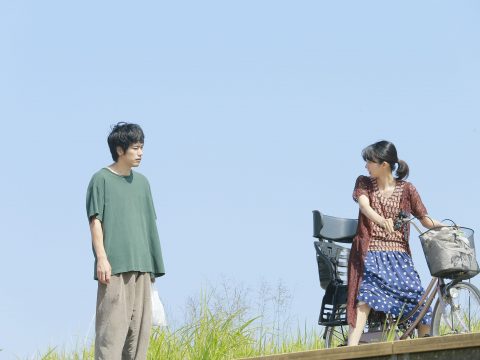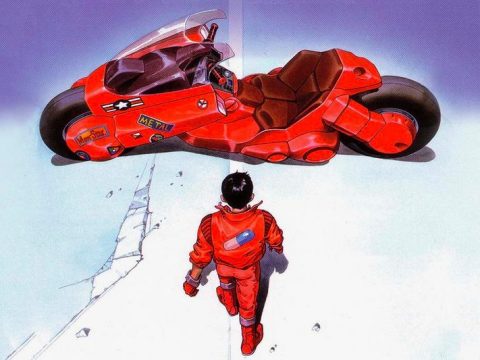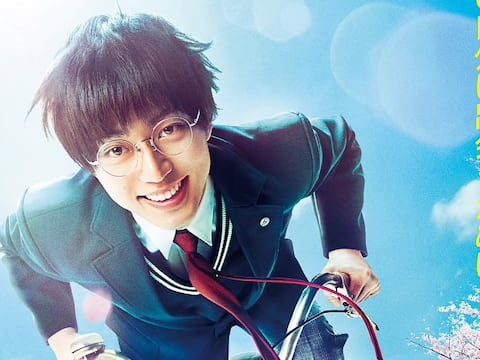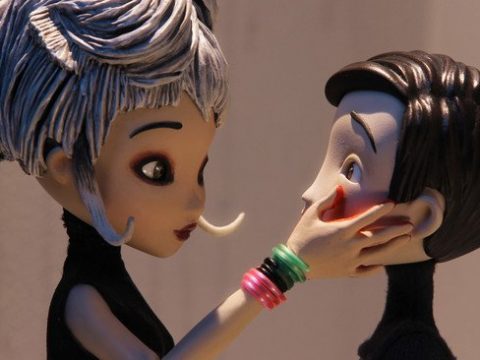
In the Age of the Internet, the word “epic” is thrown around at least once per lolcat, slowly sucking the meaning from it with the swiftness of a vampire’s bite. Yet, regardless of how stripped the word has become, I can assure you that Shinichiro Sawai’s Genghis Khan film is an epic tale in every sense, following the titular ruler’s life from birth to full-fledged conquest.
Genghis Khan or, in the longest form possible, The Blue Wolf: To the Ends of the Earth and Sea, is unique from the start. It’s not that we haven’t seen this kind of vast war tale before—far from it, maybe we’ve seen too many—but as the opening states, this is a “Japanese-Mongolian co-production commemorating the 800th anniversary of the founding of Mongolia.” Relatively speaking, the production was pretty massive, filmed in Mongolia over four months and utilizing thousands of extras and Mongolian soldiers.

The scale really shows in the final product, too. Though there are moments that Genghis Khan feels like a made for television affair, these are few and far between—swept away by legions of horseback troops and some very careful, sweeping camerawork. The tale begins even before the birth of the boy that would become Genghis Khan, but it’s his arrival that really kicks everything into gear, and the story wisely sticks closely to him through the entire running time.
The birth of Temüjin Uge turns out to be startlingly prophetic. Named after an enemy general killed by his father’s own hands, Temüjin is thrust into a blood-soaked life from the very beginning. Before long, he’s forming his own bonds of trust and, eventually, dealing with the heartache of loss as his father is taken out by one of their many enemies. From there, we watch Temüjin grow up, and youthful blood brotherhoods are formed from the world-uniting aspirations that will inevitably sever them. It’s in these early scenes that we establish Temüjin’s desire, spurred by his friend Jamuqa, to unite the Mongols under one nation.

Most of the film is spent driving toward this singular goal, and it’s a path fraught with war and the endless cycle of loss it generates. But Genghis Khan isn’t down on battles, and it’s never a preachy film, nor one that holds its subject on a pedestal above any of the other men in the story. Sure, Temüjin occasionally appears to be almost impossibly magnanimous and sincere, but he’s human before anything else, even if his ultimate goal seems nearly unattainable.
Films with such a vast historical scope tend to get bogged down by too many characters, unfamiliar faces, etc. When done poorly, they can almost seem like a sport without automated score-keeping, forcing the audience to juggle information in their heads until they’re fit to bursting. Genghis Khan has no such issues, mostly thanks to the filmmakers keeping their focus on the lead and showing restraint when the temptation to get sidetracked and drag the structure down to the ground no doubt looms heavily.

Battle sequences aren’t terribly frequent, but when they do pop up, they’re very well executed and don’t exist for the sake of gratuitous violence or the salvation of a lagging pace. With that said, there are definitely a few lingering issues when a 136 minute film feels like four hours. That might come full circle back to the aforementioned rare TV-level feeling one gets from the production but, considering the content and amount of information conveyed, it’s amazing that Genghis Khan isn’t actually four hours long.
Takashi Sorimachi, who many may recognize from his role as Eikichi Onizuka in the live-action GTO drama, does a  pretty commendable job of portraying Temüjin/Khan over a long period of time. The only moments in which his Khan gets overly dramatic lie near the tail end of the film, in a sequence of events that come off as a bit hammy in the aftermath of all that transpired before. Going into too much detail would spell out some massive spoilers, and it’s really a minor complaint in the grand scheme of the narrative.
pretty commendable job of portraying Temüjin/Khan over a long period of time. The only moments in which his Khan gets overly dramatic lie near the tail end of the film, in a sequence of events that come off as a bit hammy in the aftermath of all that transpired before. Going into too much detail would spell out some massive spoilers, and it’s really a minor complaint in the grand scheme of the narrative.
Genghis Khan has all the requisite ingredients for a modern Japanese epic, even if its subject matter isn’t exactly home-court material. There are plenty of melodramatic moments, some spirited warfare, and the whole thing even closes with a solemn pop ballad played over credits and slow-motion imagery from the film. To the Ends of the Earth and Sea comes recommended to any patient viewers with even a slight interest in a really fascinating time period, or fans of sprawling period war pieces in general. The only thing confounding about the whole affair is the R rating it received over here, which probably didn’t help the not-very-violent film’s limited theatrical release.
Studio/Company: FUNimation
Available: Now
Rating: R







